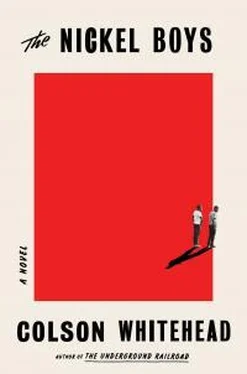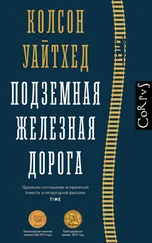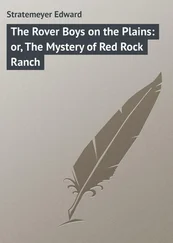Колсон Уайтхед - The Nickel Boys
Здесь есть возможность читать онлайн «Колсон Уайтхед - The Nickel Boys» весь текст электронной книги совершенно бесплатно (целиком полную версию без сокращений). В некоторых случаях можно слушать аудио, скачать через торрент в формате fb2 и присутствует краткое содержание. Год выпуска: 2019, Издательство: Penguin Random House LLC, Жанр: roman, на английском языке. Описание произведения, (предисловие) а так же отзывы посетителей доступны на портале библиотеки ЛибКат.
- Название:The Nickel Boys
- Автор:
- Издательство:Penguin Random House LLC
- Жанр:
- Год:2019
- ISBN:нет данных
- Рейтинг книги:4 / 5. Голосов: 1
-
Избранное:Добавить в избранное
- Отзывы:
-
Ваша оценка:
- 80
- 1
- 2
- 3
- 4
- 5
The Nickel Boys: краткое содержание, описание и аннотация
Предлагаем к чтению аннотацию, описание, краткое содержание или предисловие (зависит от того, что написал сам автор книги «The Nickel Boys»). Если вы не нашли необходимую информацию о книге — напишите в комментариях, мы постараемся отыскать её.
), that the world began to care.
The Nickel Boys — читать онлайн бесплатно полную книгу (весь текст) целиком
Ниже представлен текст книги, разбитый по страницам. Система сохранения места последней прочитанной страницы, позволяет с удобством читать онлайн бесплатно книгу «The Nickel Boys», без необходимости каждый раз заново искать на чём Вы остановились. Поставьте закладку, и сможете в любой момент перейти на страницу, на которой закончили чтение.
Интервал:
Закладка:
Elwood belonged to the second generation of his Frenchtown customers. Mr. Marconi hung out his shingle a few months after the army base opened in ’42. Negro soldiers took the bus up from Camp Gordon Johnston or from Dale Mabry Army Air Field, raised hell in Frenchtown all weekend, then slumped back to train for war. He had relatives who opened businesses downtown and thrived, but a white man savvy to the economics of segregation could turn a real buck. Marconi’s was a few doors down from the Bluebell Hotel. The Tip Top Bar and Marybelle’s Pool Hall were around the corner. He did a reliable trade in various tobaccos and tins of Romeos prophylactics.
Once the war ended, he moved the cigars to the back of the store, repainted the walls white, and added magazine racks, penny candy, and a soda cooler, which did much to improve the place’s reputation. He hired help. He didn’t need an employee, but his wife liked telling people that he had an employee, and he imagined it made the store more approachable to a genteel segment of black Frenchtown.
Elwood was thirteen when Vincent, the tobacco shop’s longtime stock boy, signed up for the army. Vincent hadn’t been the most attentive employee, but he was prompt and well-groomed, two qualities that Mr. Marconi valued in others if not in himself. On Vincent’s last day, Elwood dawdled at the comics rack, as he did most afternoons. He had a curious habit where he read every comic front to back before he bought it, and he bought every one he touched. Mr. Marconi asked why go through all that if he was going to buy them whether they were good or not, and Elwood said, “Just making sure.” The shopkeeper asked him if he needed a job. Elwood closed the copy of Journey into Mystery and said he’d have to ask his grandmother.
Harriet had a long list of rules for what was acceptable and what was not, and sometimes the only way for Elwood to know how it all worked was to make a mistake. He waited until after dinner, once they’d finished the fried catfish and the sour greens and his grandmother rose to clear. In this case, she held no hidden reservations, despite the fact that her uncle Abe had smoked cigars and look what happened to him, despite Macomb Street’s history as a laboratory of vice, and despite the fact she’d turned her mistreatment by an Italian salesclerk decades ago into a cherished grudge. “They’re probably not related,” she said, wiping her hands. “Or if they are, distant cousins.”
She let Elwood work at the store after school and on weekends, taking half his paycheck at the end of the week for the household and half for college. He’d mentioned going to college the summer prior, casually, with no inkling of the momentousness of his words. Brown v. Board of Education was an unlikely turn, but one of Harriet’s family aspiring to higher education was an actual miracle. Any misgivings over the tobacco shop collapsed before such a notion.
Elwood tidied the newspapers and comic books in the wire racks, wiped dust off the less popular sweets, and made sure that the cigar boxes were arranged according to Marconi’s theories about packaging and how it excited “the happy part of the human brain.” He still hung around the comics, reading them gingerly as if handling dynamite, but the news magazines exerted a gravity. He fell under the luxurious sway of Life magazine. A big white truck dropped off a stack of Life every Thursday—Elwood came to learn the sound of its brakes. Once he sorted the returns and displayed the new arrivals, he hunkered on the stepladder to follow the magazine’s latest excursions into unreckoned corners of America.
He knew Frenchtown’s piece of the Negro’s struggle, where his neighborhood ended and white law took over. Life ’s photo essays conveyed him to the front lines, to bus boycotts in Baton Rouge, to counter sit-ins in Greensboro, where young people not much older than him took up the movement. They were beaten with metal bars, blasted by fire hoses, spat on by white housewives with angry faces, and frozen by the camera in tableaus of noble resistance. The tiny details were a wonder: how the young men’s ties remained straight black arrows in the whirl of violence, how the curves of the young women’s perfect hairdos floated against the squares of their protest signs. Glamorous somehow, even when the blood flowed down their faces. Young knights taking the fight to dragons. Elwood was slight-shouldered, skinny as a pigeon, and he worried about the safety of his glasses, which were expensive and in his dreams broken in two by nightsticks, tire irons, or baseball bats, but he wanted to enlist. He had no choice.
Flipping pages during lulls. Elwood’s shifts at Marconi’s provided models for the man he wished to become and separated him from the type of Frenchtown boy he was not. His grandmother had long steered him from hanging out with the local kids, whom she regarded as shiftless, clambering into rambunction. The tobacco shop, like the hotel kitchen, was a safe preserve. Harriet raised him strict, everyone knew, and the other parents on their stretch of Brevard Street helped keep Elwood apart by holding him up as an example. When the boys he used to play cowboys and Indians with chased him down the street every once in a while or threw rocks at him, it was less out of mischief than resentment.
People from his block stopped in Marconi’s all the time, and his worlds overlapped. One afternoon, the bell above the door jangled and Mrs. Thomas walked in.
“Hello, Mrs. Thomas,” Elwood said. “There’s some cold orange in there.”
“I think I just might, El,” she said. A connoisseur of the latest styles, Mrs. Thomas was dressed this afternoon in a homemade yellow polka-dot dress she’d copied from a magazine profile of Audrey Hepburn. She was quite aware that few women in the neighborhood could have worn it with such confidence, and when she stood still it was hard to escape the suspicion that she was posing, waiting for the pop of flashbulbs.
Mrs. Thomas had been Evelyn Curtis’s best friend growing up. One of Elwood’s earliest memories was of sitting on his mother’s lap on a hot day while they played gin. He squirmed to see his mother’s cards and she told him not to fuss, it was too hot out. When she got up to visit the outhouse, Mrs. Thomas snuck him sips of her orange soda. His orange tongue gave them away and Evelyn half-heartedly scolded them while they giggled. Elwood kept that day close.
Mrs. Thomas opened her purse to pay for her two sodas and this week’s Jet. “You keeping up with that schoolwork?”
“Yes, ma’am.”
“I don’t work the boy too hard,” Mr. Marconi said.
“Mmm,” Mrs. Thomas said. Her tone was suspect. Frenchtown ladies remembered the tobacco store from its disreputable days and considered the Italian an accomplice to domestic miseries. “You keep doing what you’re supposed to, El.” She took her change and Elwood watched her leave. His mother had left both of them; it was possible she sent her friend postcards from this or that place, even if she forgot to write him. One day Mrs. Thomas might share some news.
Mr. Marconi carried Jet, of course, and Ebony. Elwood got him to pick up The Crisis and The Chicago Defender, and other black newspapers. His grandmother and her friends subscribed, and he thought it strange that the store didn’t sell them.
“You’re right,” Mr. Marconi said. He pinched his lip. “I think we used to carry it. I don’t know what happened.”
“Great,” Elwood said.
Long after Mr. Marconi had stopped minding his regulars’ buying habits, Elwood remembered what brought each person into the store. His predecessor, Vincent, had occasionally livened up the place with a dirty joke, but it couldn’t be said that he had initiative. Elwood possessed it in spades, reminding Mr. Marconi which tobacco vendor had shorted them on the last delivery and which candy to quit restocking. Mr. Marconi struggled to tell the colored ladies of Frenchtown apart—all of them wore a scowl when they saw him—and Elwood made a competent ambassador. He’d stare at the boy when he was lost in his magazines and try to figure what made him tick. His grandmother was firm, that was clear. The boy was intelligent and hardworking and a credit to his race. But Elwood could be thick-witted when it came to the simplest things. He didn’t know when to stand back and let things be. Like the business with the black eye.
Читать дальшеИнтервал:
Закладка:
Похожие книги на «The Nickel Boys»
Представляем Вашему вниманию похожие книги на «The Nickel Boys» списком для выбора. Мы отобрали схожую по названию и смыслу литературу в надежде предоставить читателям больше вариантов отыскать новые, интересные, ещё непрочитанные произведения.
Обсуждение, отзывы о книге «The Nickel Boys» и просто собственные мнения читателей. Оставьте ваши комментарии, напишите, что Вы думаете о произведении, его смысле или главных героях. Укажите что конкретно понравилось, а что нет, и почему Вы так считаете.

![Колсон Уайтхед - Подземная железная дорога [litres]](/books/411182/kolson-uajthed-podzemnaya-zheleznaya-doroga-litres-thumb.webp)










